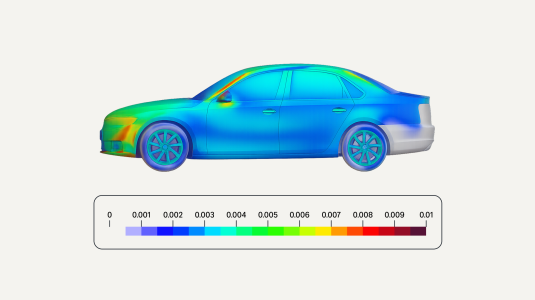Customer-obsessed science


Research areas
-
September 26, 20259 min readTo transform scientific domains, foundation models will require physical-constraint satisfaction, uncertainty quantification, and specialized forecasting techniques that overcome data scarcity while maintaining scientific rigor.
-
-
September 2, 20253 min read
-
-
August 21, 20257 min read
Featured news
-
NeurIPS 20232023The real-time estimation of time-varying parameters from high-dimensional, heavy tailed and corrupted data-streams is a common sub-routine in systems ranging from those for network monitoring and anomaly detection to those for traffic scheduling in data-centers. For estimation tasks that can be cast as minimizing a strongly convex loss function, we prove that an appropriately tuned version of the clipped
-
NeurIPS 20232023Language models pretrained on large collections of tabular data have demonstrated their effectiveness in several downstream tasks. However, many of these models do not take into account the row/column permutation invariances, hierarchical structure, etc. that exist in tabular data. To alleviate these limitations, we propose HYTREL, a tabular language model, that captures the permutation invariances and
-
NeurIPS 2023 Workshop on Artificial Intelligence for Humanitarian Assistance and Disaster Response (AI + HADR)2023Cell phone coverage and high-speed service gaps persist in rural areas in sub-Saharan Africa, impacting public access to mobile-based financial, educational, and humanitarian services. Improving maps of telecommunications infrastructure can help inform strategies to eliminate gaps in mobile coverage. Deep neural networks, paired with remote sensing images, can be used for object detection of cell towers
-
NeurIPS 2023 Workshop on Robustness of Zero/Few-shot Learning in Foundation Models (R0-FoMo)2023Recent advances in Large Language Models (LLMs) have led to an emergent ability of chain-of-thought (CoT) prompting, a prompt reasoning strategy that adds intermediate rationale steps between questions and answers to construct prompts. Conditioned on these prompts, LLMs can effectively learn in context to generate rationales that lead to more accurate answers than when answering the same question directly
-
KDD 2023 Workshop on Mining and Learning with Graphs, WSDM 20242023Graph Neural Networks (GNNs) have demonstrated promising outcomes across various tasks, including node classification and link prediction. Despite their remarkable success in various high-impact applications, we have identified three common pitfalls in message passing for link prediction, especially within industrial settings. Particularly, in prevalent GNN frameworks (e.g., DGL and PyTorchGeometric), the
Collaborations
View allWhether you're a faculty member or student, there are number of ways you can engage with Amazon.
View all














































